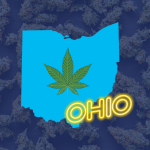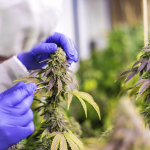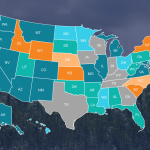Similar to cannabis’ path to legalization, the process of legitimizing psilocybin will likely be a slow process with many legislative hurdles. In order to change current psilocybin laws, extensive scientific research and evidence showing the medical benefits will be necessary to remove negative connotations and shift public opinion.
Efforts to reform psilocybin laws are growing throughout the United States and business opportunities for both research labs and commercial operations are becoming more common in anticipation of legalization.
Business Opportunities
To prepare for future psilocybin expansion, a major focus of psilocybin companies has been the creation of new products or delivery methods that can be patented. The last few years have seen a number of notable patent applications for psilocybin companies, including:
- Champignon: has several patents in motion for psilocybin and cannabinoid drugs aimed at treating PTSD.
- Mydecine: filed for 7 patents on medical products derived from psilocybin mushrooms.
- Lobe Sciences: applied for patents on nasal delivery devices for psilocybin.
- NeonMind: filed a number of patents for weight-loss-related psilocybin drugs.
These companies aim to have patents and products developed when psilocybin becomes legalized. A step ahead of the competition, these companies will be well-positioned in the future psilocybin market.
Good Manufacturing Practices and Compliance
Once commercial psilocybin operations have been fully legalized and regulated, there will be a major shift towards improving Good Manufacturing Practices (GMPs). The psilocybin industry will likely take after the cannabis industry where regulatory agencies and consumer demand pushed for the evolution of GMPs.
The early days of legal cannabis saw a similar process standardizing production, compliance, and quality practices. To illustrate, medical cannabis products in the early days of California’s Proposition 215 were rarely, if ever tested. As such, dispensaries could easily sell cannabis tainted with pesticides, molds, and other impurities. Yet, as more U.S. states legalized cannabis and GMP standards were streamlined, product purity became far more scrutinized in California and in the rest of the industry. Not only do regulatory agencies like Colorado’s MED Division strictly regulate product quality, but consumers now also demand cleaner, higher-quality cannabis products.
Marketing and Branding
With a strong emphasis on GMPs and product quality in place, new marketing and branding efforts will have a platform to take shape in psilocybin. Just as seen with the wine industry, the perfection of cultivation conditions can be critical in the development of a memorable and respected brand. When psilocybin mushroom growers have the opportunity to perfect their craft in a legal market, there will be a growing trend toward sophisticated branding and marketing.
The earliest cannabis dispensaries did not feature a single cannabis brand. Dispensaries simply sold flowers and concentrates by strain or product name, as opposed to the brand that produced them. Things look much different today – with branded products such as Willie’s Reserve and Marley Natural taking up a vast majority of shelf space at retail dispensaries.
The Future of Psilocybin
The future of the psilocybin industry is both exciting and full of opportunities. Though psilocybin has not yet been fully legalized, opportunities currently exist to enter the industry in research and advocacy. As the industry further develops, these opportunities may expand to include more commercial business opportunities.
How Can Sapphire Risk Help?
Tony Gallo and the team at Sapphire Risk Advisory Group are prepared to help with licensing and security procedures for commercial psilocybin facilities across the country, including states like California, Colorado, and Oregon. Follow us on social media to stay up to date with psychedelic industry updates!
- First Experiences: What Our Interns Learned From Entering The Cannabis Industry

- California Senate Bill 69 Adds CEQA Requirements for New Cultivators

- Top 5 Cannabis Security and Surveillance Violations

- Peace of Mind in the Retail Sector: Facility Security

- Opportunities in the Ohio (O-High-O) Cannabis Market

- Building Security and Trust: Verifying Identification and Payments

- The Importance of Loss Prevention

- Thoughts to Improve Cannabis Security Regulations Across the Nation

- Opportunities in the Minnesota Cannabis Market

- U.S. Cannabis Legalization 2023 Update


